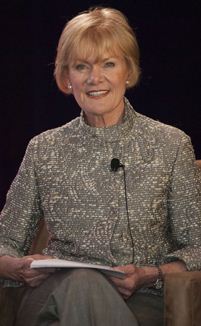Companies whose boards include women outperform their all-male competitors in ROI by 26 percent, according to a 2011 Catalyst study. But women only hold 12.5 percent of the board seats at insurers and reinsurers, according to a study released this month by Saint Joseph’s University Academy of Risk Management and Insurance.
Here’s the story of how three women found seats on the Farmers Insurance Exchanges Boards of Governors for Farmers Insurance, as described at a panel discussion at the IICF Women in Insurance Global Conference.
The women couldn’t be more diverse: Gisselle Acevedo spent her career working on Latina issues for for-profit and non-profit West Coast organizations; Gail Jackson is a practicing ob/gyn affiliated with Cedars-Sinai Medical Center in Los Angeles; and most of Dale Marlin’s 30-year career was spent with IBM Corp.
What all of them have in common is the fact that they’re Farmers policyholders, and a dedication to bringing a diverse perspective to the Farmer’s board—which is made up of 23 members, 4 of which are women.
“We’ve made a concerted effort to increase board diversity, ensuring a representative voice for our customers,” said Deborah Aldredge, chief administrative officer for Farmers Insurance and the panel’s moderator. “As demographics shift and as we look at board turnover, we will continue to look for more board diversification.”
Diversified perspectives at the board level are invaluable in providing insights on how to approach advertising, education, marketing materials, expanding market share and community involvement, Aldredge said.
One example is how Farmers’ marketing efforts were influenced by Acevedo’s observation that many Latino households prefer to make insurance and other financial decisions in face-to-face, “kitchen table” meetings with the entire family, she said.
Serving on a for-profit board of directors is not a responsibility to be taken lightly, the speakers agreed. From the lengthy, sometimes intimidating vetting process before appointment to the intense preparation that’s required before an important vote, board members are expected to be actively engaged in their responsibilities.
But for the women participating on the board, it’s an opportunity to make valuable connections and gain solid experience on the inner workings of a major corporation.
Read on to meet the women.
.jpg) Gisselle M. Acevedo
Gisselle M. Acevedo
Acevedo is the former president and CEO of Para Los Ninos, a non-profit organization supporting children’s charter schools and wellness centers in Los Angeles. She also has a background in media, as former president and general manager of the Spanish-language newspaper Hoy, and vice president of public affairs at the Los Angeles Times. She has previously served on the boards of several banks and large insurance companies.
Farmers approached Acevedo about board membership, recognizing her familiarity with Los Angeles’ population—60 percent of which is Latino--and her background in education, which helps with her work for the University of Farmers, Aldredge said.
Although she is aware of her qualifications, Acevedo also knows that the Farmers board had courted her because of her gender and ethnicity—and is proud of the fact. “Sometimes companies must make the effort to say they want a female for a board position--who must, of course, be qualified,” she said.
Women bring a valuable perspective and shareholder representation to for-profit boards, giving that company a competitive advantage in a global economy, Acevedo said. “The board will approach issues from multiple perspectives; I bring the perspective of people of color,” she said.
But while voicing that perspective to the board is important, Acevedo cautioned that women be aware that other board members are scrutinizing how they vote on issues, especially if they are the only ones raising the issue of diversity. “But you must convey your opinion, especially if a decision doesn’t feel right from the perspective of who you represent,” she said.
For women who want to serve on a board, Acevedo suggests tempering confidence (“Don’t doubt your skills”) with the awareness that the conflicting views raised on a board can put them outside their comfort zone. “Consider it an experiment,” she said. “You must be comfortable with the fact that it might not always be comfortable. There’s plenty of conflict, but it teaches you a sense of who you are.”
.jpg) Gail Jackson
Gail Jackson
A Los Angeles-based practicing ob/gyn affiliated with the Cedars-Sinai Medical Center, Jackson is also active in local civic and political organizations. Her experience with Farmers was her first for-profit board appointment.
After her daughter left home as a young adult, Jackson found herself with a case of empty-nest syndrome and was looking to “be part of something where I could contribute.” By coincidence, the father of one of her daughter’s friends, a Farmers senior executive, contacted Jackson about the board position. Although she didn’t think her background would be a fit, she thoroughly researched the company and the Farmers people she would be interviewing with. After a thorough vetting on both sides, Farmers offered Jackson the board position and she accepted.
Jackson’s concerns that her skill set wouldn’t match the board’s needs were unfounded. “There are 23 of us, all with different skill sets, all of us independent leaders learning to work for the common good of Farmers and its policyholders, so it’s important that these are complementary,” she said. “Otherwise it’s chaos.”
The need for board members’ personalities and experiences to mesh is more important than expanding board diversity simply by skin color or gender, she said. “You must be good fit with the board; you want to feel like you belong there,” she said.
A board position can be a powerful springboard for advancing a woman’s career, Jackson said. Within several months of her Farmers board appointment, she was approached by a medical malpractice board that was interested in her because of her Farmers experience.
Because of her entrepreneurial experience, Jackson was familiar with profit and loss statements, a core skill required for most for-profit board positions. However, professional women of any experience level should seek to serve on nonprofit boards to gain valuable experience and hone their networking skills, she said.
 Dale A. Marlin
Dale A. Marlin
Marlin spent most of her 30-year career with IBM Corp., where she provided business information and IT consulting services to senior executives primarily in the financial services industry. Between 1988 and 1996, at a time when there were very few women in higher management positions, she was the lead IBM consultant for Farmers Group Inc.—a position that Marlin’s sponsor within IBM helped her achieve.
The solid working relationship with Farmers helped pave the way for her appointment to the Farmers board in 1998.
Marlin credits her work experience as helping her to develop the core competencies for board success: foundational knowledge, engagement with key corporate players, understanding industry issues and familiarity with the financial side of the business.
Women seeking board positions should be fully aware of the level of responsibility involved with the job, she said. It takes 3 to 5 days to prepare for a board meeting, and a great deal of back-and-forth with the chief financial officer if the board will be voting on resolutions. Board members must also possess technical and analytical skills, especially to grasp the financial metrics involved in running a business.
And there’s a more subtle relationship dynamic involving how board members react with one another, Marlin said, echoing Jackson’s comment on the importance of “fit” between board member experience.
Marlin reiterated the importance of getting experience on a nonprofit board to learn “board etiquette” and dynamics, as well as conflict resolution--and to “learn how to persuade people instead of telling them what to do”—essential for entrepreneurial types who are used to running their own businesses.
And any board membership is valuable to women because it exposes them to other executives could could become potential career sponsors, Marlin said.
“Look at the company you’d like to serve and study its board members,” she said. “Try to get to know some of those people. The more people you can get in front of, the better.”
Want to continue reading?
Become a Free PropertyCasualty360 Digital Reader
Your access to unlimited PropertyCasualty360 content isn’t changing.
Once you are an ALM digital member, you’ll receive:
- Breaking insurance news and analysis, on-site and via our newsletters and custom alerts
- Weekly Insurance Speak podcast featuring exclusive interviews with industry leaders
- Educational webcasts, white papers, and ebooks from industry thought leaders
- Critical converage of the employee benefits and financial advisory markets on our other ALM sites, BenefitsPRO and ThinkAdvisor
Already have an account? Sign In Now
© 2024 ALM Global, LLC, All Rights Reserved. Request academic re-use from www.copyright.com. All other uses, submit a request to [email protected]. For more information visit Asset & Logo Licensing.








